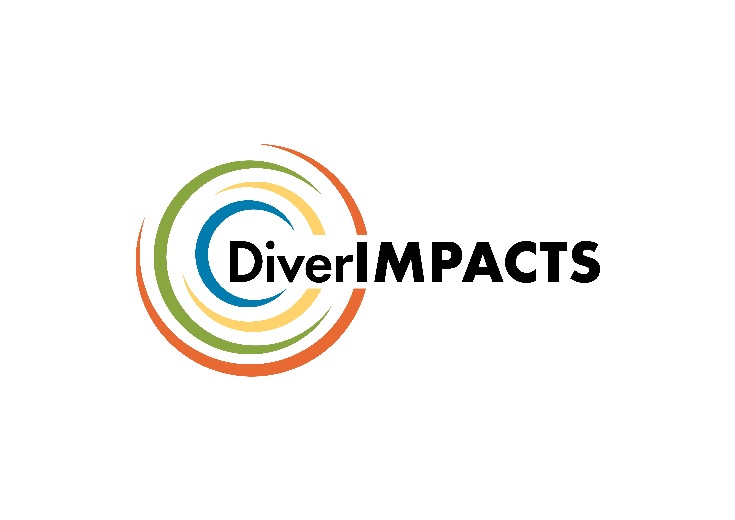Context
Crops such as wheat, maize and oilseed rape have been increasing in many cropping areas while root crops have decreased significantly. As a consequence, cropping systems are more and more simplified. Rotations such as rapeseed-wheat-barley or maize-wheat are increasingly frequent in France whereas 17% of wheat crop fields are followed by another wheat crop. The whole sociotechnical system (public policies, industries, professional training, research, …) have supported this trend.
The side-effects of this specialisation of territories, farms and rotations are becoming obvious: i) the negative impact on natural resources (e.g. fossil energy consumption and greenhouse gas emissions related to the quasi-disappearance of grain legumes in some regions); ii) the increase in pesticide use due to higher weed, pest and disease pressure in short crop rotations; iii) the reduction in biodiversity related to homogeneous habitats and frequent use of pesticides; iv) the contribution to yield stagnation of arable crops ; v) as well as the impact on the delivery of public goods, ecosystem services and the provision of long-term societal benefits at large.
Temporal and spatial diversification of crops through rotation, multiple and intercropping schemes, by allowing the implementation of low-input agronomic practices is highlighted as a key issue for future sustainable development of multifunctional agroecosystems. More diversified cropping schemes would underpin more resilient and resource-efficient farming systems that are able to fulfil simultaneously the need to produce food, feed, industrial products and other ecosystems services. However, despite its potential benefits, and some attempts to set up sectorial incentive measures, crop diversification has gained little ground so far.
Objectives
The overall goal of DiverIMPACTS is to realise the full potential of crop diversification through rotation, intercropping and multiple cropping, promoted by actors and value chains towards sustainability, by demonstrating clear technical, economic and environmental benefits for farmers, value chains and society and by providing rural actors with those key enablers and innovations that remove existing barriers and ensure actual uptake of combined benefits at farm, value chain and territory levels.
Description of tasks
WP1 - Identification of success and failure factors of crop diversification across Europe
The aim of WP1 is to identify and analyse factors of success and failure associated with a variety of crop diversification experiences that will be collated outside those already represented in the consortium through the Case Studies (CSs). To do so, fuzzy cognitive mapping methodology through open interviews with key actors of value chain related to the experiences (from farmers to consumers) will be used. In addition to this survey, literature search and existing meta-analyses on crop diversification benefits and drivers will be assessed, synthesised and updated whenever relevant.
WP2 – Promoting crop diversification in CSs through actor-oriented research
WP2 will structure the dynamics of 25 case studies (CS) in 5 Innovation Clusters. Each CS is represented by a CS leader and a CS -monitor. The CS teams together constitute the ‘learning -for-innovation platform’, a community of practice facilitated by a Platform Hosting Team that provides concepts and tools to capacitate the teams. The Platform allows CS teams to benefit from knowledge and experiences in other CSs and to connect the workpackages. For each CS, an iterative co-innovation process, including already identified value chain actors beyond those involved as partners is implemented to: (1) define the current motivation and specific objectives for crop diversification, (2) co-adapt innovative diversified cropping systems in an iterative and context-dependent way, (3) identify the bottlenecks and technical solutions that will be further addressed by other work packages, (4) define with WP4 (assessments) the indicators that are most relevant to assess the sustainability of innovative, diversified cropping systems, and (5) assess relevant innovative schemes resulting from WP3 or from WP5.
WP3 – Quantification of the benefits from diversified cropping systems through field experiments (FEs)
WP3 will set up a network of FEs that will assess crop diversification impacts and test combination of intercropping, multiple cropping and crop rotation. A network of already existing or planned FEs will be used (1) to demonstrate field benefits of different strategies (rotation, intercropping and multiple cropping) with different species under a range of diverse soil and climatic conditions in Europe and (2) to test new temporal and spatial arrangement of species and management, to better achieve expected benefits both for farmers and for the requirements of value chains. A series of measurements, including yield (per ha and per year, Land-Equivalent Ratio), use of resources (light, water, nutrients) input use (fertilisers, pesticides, energy, water), weed, pest and diseases pressure, soil fertility and biodiversity, will be carried out following common protocols to allow benchmarking.
WP4 – Sustainability assessment of crop diversification at farm, value chain and territory levels
WP4 aims to adapt and expand multi-criteria assessment tools to evaluate sustainability of crop diversification, at farm, value chain and territory levels. DiverIMPACTS will build on existing multi-criteria assessment tools that partners of the consortium have developed (based on Multi-Criteria Assessment and Life Cycle Analysis) to harmonise, across CSs and FEs, the assessment of technical, economic, social and environmental performances of diversified systems as well as the delivery of ecosystem services (such as water quality and carbon sequestration).
WP5 – From lock-ins to innovations and value chain redesign
WP5 aims to deepen the analysis of drivers of crop diversification by mobilising the multi-level perspective theory, illustrating lock-in, path-dependency and transition pathways. The outcomes of existing studies on lock-in effects and transition pathways will be used to accompany the CSs in their analysis of specific barriers. An in-depth analysis of coordination modes between the actors involved in a supply chain and/or a territory will be carried out to identify possible strategies to remove bottlenecks/barriers and/or promote enablers, at the farm level (technology, skills, knowledge) and/or the value chain (logistics, contract arrangements, added value sharing, market development). Organisation and contract schemes with downstream value chain actors will be developed in order to support the development of innovative value chains.
WP6 – Strategies, methods and tools to sustain crop diversification all along the value chain
WP6 will develop comprehensive and long-term strategies, recommendations and tools to promote the adoption of crop diversification within the current sociotechnical system.
WP7 – Transfer, dissemination and communication of the project outcomes
Achieved results
In terms of results, DiverIMPACTS has allowed to:
- Identify success and/or failure factors associated with culture diversification experiments (https://www.zenodo.org/record/3779915) and identify possible solutions to overcome identified barriers (https://www.zenodo.org/record/4904532#.ZEkVgc7P1PY);
- Develop five policy notes for the development of appropriate policy instruments to support adoption and sustainability of systems based on crop diversification (https://www.diverimpacts.net/resources/policy-briefs.html);
- Develop a specific multi-criteria analysis tool to assess the benefits and disadvantages associated with diverse crop systems, both at the technical, environmental and social levels (https://www.zenodo.org/record/4088176#.ZEkV1M7P1PY);
- Write fifteen fact sheets highlighting innovative practices to support crop diversification (https://www.diverimpacts.net/service/practice-abstracts.html);
- Develop a decision tree (DAO) to assist stakeholders in identifying the best resources available to support the implementation of crop system diversification strategies (https://www.diverimpacts.net/toolbox.html);
- Published around thirteen videos illustrating diversification dynamics (https://www.diverimpacts.net/service/videos.html).
Contribution
Frédéric Vanwindekens – Coordination of WP1 and contribution to WP5
Daniel Jamar & Technical team of U11 – Monitoring of Walloon CSs and co-leading of CRA-W/GREENOTEC CS (WP2)
Donatienne Arlotti & Technical team of Gembloux – Follow up of long term experiment (WP3)
Florence Van Stappen – Coordination of the task mobilising LCA methodology (WP4)
Didier Stilmant – Deputy leader of the project and coordination of Walloon dynamics
Partners
Institut national de la recherche agronomique (Inra)
- Assemblée permanente des chambres d’agriculture (APCA)
- Association de coordination technique agricole (ACTA)
- Association groupe École supérieure d’agriculture d’Angers (ESA)
- Bioforum Vlaanderen (Bioforum)
- Consiglio per la Ricerca in Agricoltura e l’Analisi dell’Economia Agraria (CREA)
- Fondazione Italiana Per la Ricerca in Agricoltura Biologica e Biodinamica (FIRAB)
- Forschungsinstitut für Biologischen Landbau Stiftung (FiBL)
- Inagro, Provinciaal extern Verzelfstandigd Agentschap in Privaatrechtelijke Vorm VZW (Inagro)
- Inra Transfert SAS (IT)
- Instytut Uprawy Nawozenia I Gleboznawstwa, Panstowowy Instytut Badawczy (IUNG-PIB)
- Landwirtschaftskammer Niedersachsen (LWK)
- Okologiai Mezogazdasagi Kutaointezet Kozhasznu Nonprofit KFT (ÖMKI)
- Progressive Farming Trust LTD (ORC)
- EuroConsultants (ERC)
- Services opérationnels du collège des producteurs (Socopro)
- Stichting Bionext (Bionext)
- Stichting Dienst Landbouwkundig Onderzoek
- Sveriges Lantbruksuniversitet (SLU)
- Thünen Institut für Biodiversität (VTI)
- Université catholique de Louvain (UCL)
- Wageningen University (WU)
- Wal. Agri SA (Walagri)
Funding
- CE - DG Research - Horizon 2020





